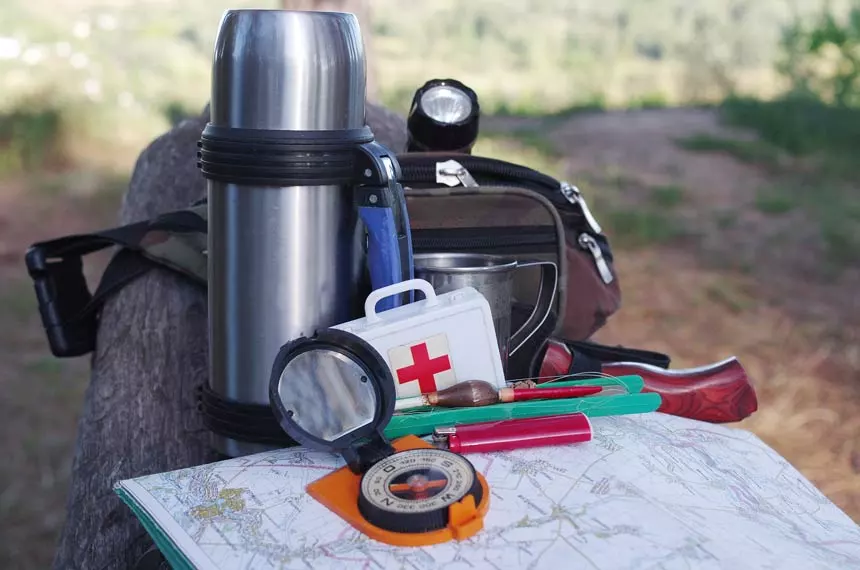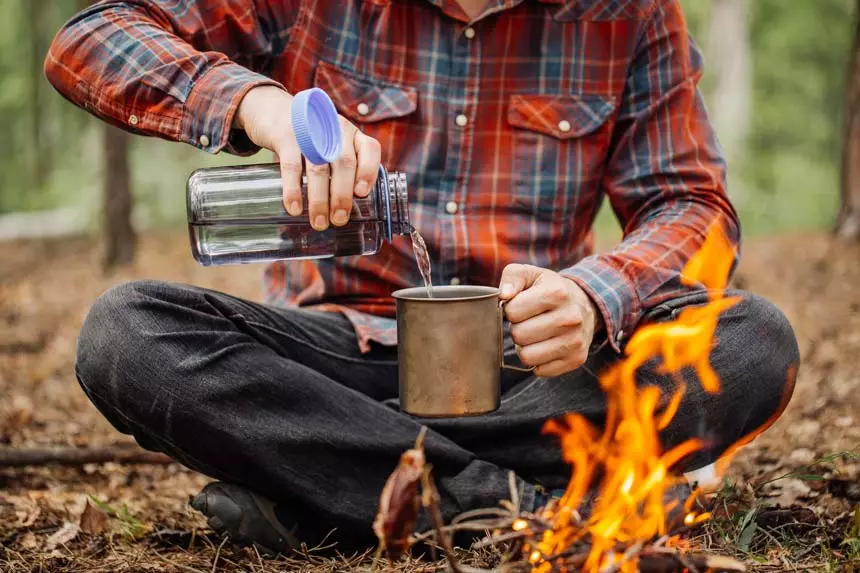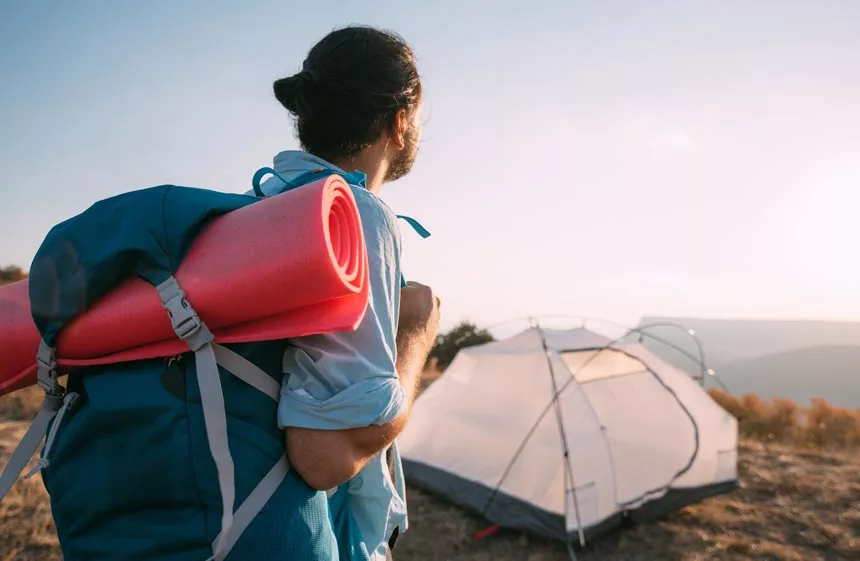Going on camping seems fun. It is precisely a name for an adventurous tour that frees us some days to enjoy the wilderness. But what could be dangerous in that? A LOT OF THINGS! While you may check your campsite’s weather forecast and location, you might be unaware of the other dangers it could have. So, caring for camping safety tips becomes a necessity.
Camping safety is a delicate and often overlooked aspect of a camping trip. It primarily occurs when traveling with a large group of people. And one wrong move can lead to a disastrous camping experience putting you and your loved ones in compromising situations. An organized, detailed camping packing list can eliminate most of these risks.
You can pack your exquisite backpack with plenty of water, cooked food, and essential camping gear. But upon reaching your desired campsite, be extra cautious about some other safety measures that include:
Table of Contents
Learn More About Your Surroundings
Unknown places need better inquisitions. Even though the site you are about to pitch your tent on is a reputed campsite, learning about its surroundings won’t cause any harm. We understand you may have already studied the location. But yet, checking on the internet or hearing from experienced campers can help you find your specified comfort zone.
Don’t start settling the camping equipment as soon as you exit the metro. Take a tour around the neighborhood to choose a suitable location for your tent. It will also help you figure out a well-outlined camping plan for as long as you plan to stay in that area.
If you are on a fun-filled family camping trip, explore the surroundings before the kids do. There could be poisonous plants or bugs outside waiting to ruin their fun experience anytime soon.
Check For Poison Oak, Ivy, and Poison Sumac

Poison ivy, oak, and sumac, who hasn’t heard of these plants living in the USA? These are almost everywhere, ready to cause your skin irresistible rashes out of nowhere. So, be aware of getting in touch with them.
While you roam around your camp area, you are likely to find one or two of these plants. You might even touch them out of curiosity; 85% of people make this blunder. Consequently, their skin develops severe allergic reactions.
The good news is you can quickly identify these plants through your eyes. All it requires you to identify a few common features of the plants. However, if you get infected by any chance and the skin irritation becomes irresistible, you can try out products like Tecnu. It will help lessen the irritation and rashes. In such instances, you could also apply Calamine Lotion or Hydrocortisone.
Avoid burning these plants as their oil will spread across the air and cause dangerous skin outcomes. No wonder it could even get into your throat and lungs, demanding emergency hospitalization.
Avoid Messing With The Wildlife
There are significant dangers of camping, especially for a wildlife camping lifestyle. Experts say that hundreds of people and animals face fatalities every year due to people’s carelessness in such outdoor adventures.
As much as we care about our safety issues, animals do the same. Wildlife animals are indeed a threat to humans. But it depends on whether a human is blocking their road of movement. Camping or performing an outdoor activity in their place is a typical camping mistake.
Therefore, when selecting a camping zone out in the woods, ensure you are safe from invading the animals’ quarters. That way, there will be no danger of encountering the terrible creatures of nature. You should also avoid taking the following actions,
- Letting your child play around without an adult supervision
- Not using any tent camping safety equipment.
- Feeding an animal
- Touching the animals
- Getting too close to them
Keep Your Safety Gear Nearby

Safety gear helps you enjoy your camping adventures without any worries. Camping comes with many risks that you need to be prepared for. You never know when animals will attack or if someone will get lost and need help. This is why safety equipment is an essential part of your camping essentials. It’s also vital for families with children to stay safe while enjoying nature.
You should pack essential gear in a separate backpack, such as a first aid kit, lighter, rope, compass, whistle, etc. It will allow you to access them quickly in terms of emergencies. Before going to bed, you should also ensure your tent’s safety through a lock or tarp appliance.
Any camping vacation should be about having fun in the great outdoors. So, while planning your next backpacking trip, add protective gear according to your camping season needs. That way, you’ll stay safe during your journey.
Stay Safe From Mosquitoes & Bug Bite
Mosquitoes are common in the neighborhoods but can spread severe illnesses in the wilderness. Dense and damp woods produce dangerous bugs and mosquitoes that only the inhabitants (animals) can live with. A single bite of those wild bugs or mosquitoes can cause fatal human infections.
Therefore, wear long pants or a long-sleeved shirt to minimize exposure to insects and ticks when you’re outdoors. In the summertime, when walking barefoot, it’s wise to wear shoes, socks, and long pants to avoid having your ankles and feet bitten by fire ants.
Don’t forget to bring bug repellent or mosquito repellent with you. There are a lot of good mosquito repellents on the market, which you can buy while heading to sleepover camp. Spray yourself and your gear before setting off, and avoid bites altogether. Apply more spray if you start to itch. Such a defense mechanism will make them more active when they feel threatened. Wear loose clothing that allows for lots of air circulation if you get bitten.
Check For Water Safety

Water may look clean and harmless, but dangerous pathogens like giardia, norovirus, and cryptosporidium can potentially lurk inside. These microorganisms are often there in freshwater, especially during peak-season runoff and after flooding. As a result, you must ensure that your water is safe.
When you reach your campsite, check how safe its water resource is. Inquire with others about water safety and whether or not you should use a filter. However, we recommend packing water-purifying medicines along with you. It will help you purify the water even though your camp’s water is safe to drink.
But keep in mind that you must strictly adhere to the guidelines! Water filters and purifying powders have been designed to do the dirty work for you. So, study the instruction manual whenever you’re confused about what to do.
Practice Camping Safety Actions
Campfires are what make camping great. Telling ghost stories and staying up all night under the stars with a campfire is the most enjoyable moment of camping. But campfires can go from a beautiful experience to a dangerous nightmare in less than a second.
So, be sure to practice fire safety, and know how to put out a fire before it gains any ground. No one wants their favorite tent or sleeping bag to go up in flames.
Follow these tips to ensure forth safe fire practices for igniting a campfire:
- Observe the wind direction
- Set all the chairs, tents, and other objects far from the fire
- Before getting back to the tent, ensure the campfire is out
- Keep the very first 15 feet away from anything, including your tent and adjacent trees
- Always keep an eye on the flames.
- Keep a bucket of water nearby.
You should also look out for sun damage. Many people think sun rays are only effective when you go on summer camp. But the fact is, as long as you are under the sun, your skin will likely be affected by its UV rays, whether in summer or winter.
So, protect your skin from sun damage year-round with a sunscreen that provides broad-spectrum UVA/UVB protection. Because the midday sun is the most intense, protecting your skin is critical. A bad sunburn will ruin any trip, no matter how positive the rest of it is.
Stick to these simple rules to avoid getting burned and hurting yourself:
- Use sunscreen with SPF 30 or higher and UVA and UVB protection.
- Apply sunscreen frequently, so if you did not apply enough when heading out, you could reapply during the day.
- Cover your face, ears, and neck as much as possible with a hat.
- Wear sun-protective clothes that cover the rest of your body.
- When possible, avoid direct sunlight.
Wrap Up
You need to be mentally and physically prepared if you are going camping. However, it takes a lot of work to plan a camping trip. Your efforts will result in a beautiful experience with friends and family.
There are some things to think about when packing. Pack outdoor clothing that is appropriate for the weather. You’ll need waterproof and breathable jackets to keep you warm in the winter or rain gear to protect against the cold and dampness. Pack light, loose-fitting clothing made of natural fibers when it’s hot. Avoid cotton and stick to cool fabrics like linen and silk.




